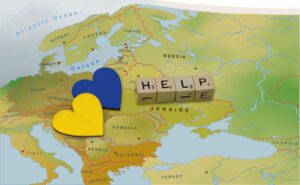The European Council has voted to extend sanctions against certain sectors of the Russian Federation for a further 6 months until 31 January 2022, according to a press release published by the Council.
Sanctions against Russia are in relation to the continued military destabilization of Ukraine by Russia, taking place largely in Ukraine’s eastern Donbas region.
The prolongation of sanctions comes after the latest assessment of the two Minsk Agreements, with the most recent agreement being signed on 31 December 2015 and assessed again on 24-25 June 2021. The Minsk Agreements, which were intended to bring peace to Ukraine, has been continuously violated by Russia.
In response to Russia’s shortcomings for pace, the EU is prolonging sanctions against individuals and entities.
“On that occasion EU leaders called on Russia to fully assume its responsibility in ensuring the full implementation of the Minsk agreements as the key condition for any substantial change in the EU’s stance. In light of the fact that these agreements are not fully implemented by Russia, EU leaders unanimously decided to roll-over the economic sanctions in place against the country,” the press release reads.
The EU’s sanctions limit access to EU primary and secondary markets for certain Russian banks and companies. In addition, they prohibit certain forms of financial assistance and brokering for Russian financial institutions.
These sanctions also ban all trade or transfer of any defense-related material as well as dual-use goods for military use or military end-users in Russia. Further, the sanctions limit Russian access to sensitive technologies that can be used in the Russian energy sector.
In addition to these sanctions, the EU has also extended other measures against Russia. These include diplomatic measures, restrictions on economic relations with Crimea and Sevastopol, and individual restrictive measures that include asset freezes and travel restrictions.
Originally, sanctions were in response to Russia’s 2014 annexation of Ukraine’s Crimea Peninsula. As the annexation evolved into a full-scale war in the country, sanctions against Russia intensified and have been extended several times after the failed peace agreements between Russia and Ukraine.
Although EU sanctions and restrictions are damaging, they have failed to slow offensive operations against Ukraine perpetrated by Russia.














